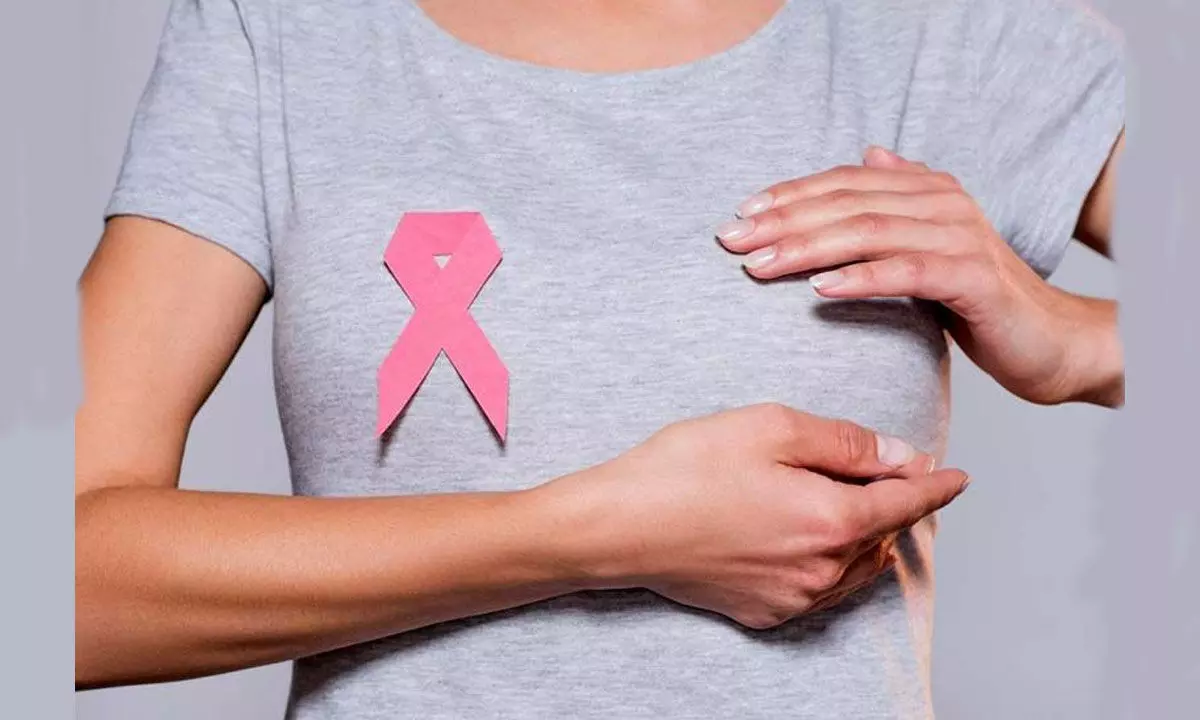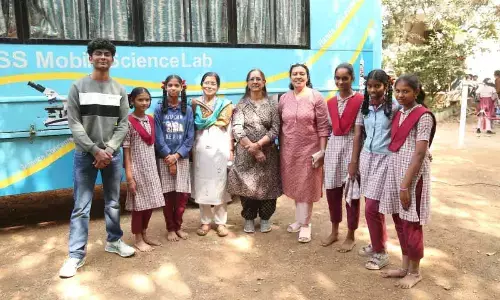Doctors urge women to look beyond lumps for breast cancer symptoms
Share :

Amazing facts about breast cancer
While the most common presentation in breast cancer is a lump in the breast, it can occur even without any noticeable symptoms, said doctors on Tuesday while urging for self-examination and screening
New Delhi: While the most common presentation in breast cancer is a lump in the breast, it can occur even without any noticeable symptoms, said doctors on Tuesday while urging for self-examination and screening.
October is celebrated as breast cancer awareness month.
Breast cancer is the most common cancer among women in India. With a high mortality rate, it is a major public health concern in the country.
As per a recent ICMR study, breast cancer cases and deaths are expected to rise in India by 2045.
However, the key is to detect the cancer in its early stages to help boost treatment outcomes as well as survival rates, said the experts.
“Although most common presentation in breast cancer is lump in the breast, it can also present as swelling or lumps under the arm or near the collarbone, nipple discharge (clear, bloody, or yellowish), changes in skin over breast (dimpled, thickened, or appear like an orange peel),” Dr. Abhishek Shankar, Assistant Professor, Department of Radiation Oncology, Dr BR Ambedkar Institute Rotary Cancer Hospital at AIIMS, Delhi, told IANS.
“Redness or rash over skin over breast or nipple, inverted nipple, changes in breast size and shape and pain in breast” are also symptoms of the deadly cancer, the doctor added.
As per ICMR, breast cancer cases account for 28.2 per cent of all female cancers in India in 2022. The five-year survival rate for breast cancer in India is 66.4 per cent.
Breast cancer can be early detected and early diagnosed. It can be early detected with screening tests and mammography is the standard recommended screening test that gives mortality advantage. As per the United States Preventive Services Task Force updated guidelines in 2024, it is recommended to start at 40 years of age after every 2 years.
“One can have breast cancer even without any noticeable symptoms. That is why the role of screening through mammograms or breast MRI is important, as it has been shown to reduce mortality by over 30 per cent,” Dr. Divya Sehra Consultant - Gynaecologic Oncology, Manipal Hospital Dwarka, New Delhi, told IANS.
Common signs and symptoms, apart from breast lumps, include changes in the shape or contour of the breasts, making mirror examinations useful.
“Skin changes, such as redness and pain, are common when the tumour grows towards the skin. Generalised symptoms like unexplained weight loss, back pain, or pain in the upper right side of the abdomen may be present in metastatic cancers,” Sehra said.
Shankar noted that breast self-examination and clinical breast examination can help to diagnose breast cancer at an early stage. Clinical breast examination is being adopted for community-based breast cancer screening under the National Programme on Prevention and Control of Noncommunicable Disease (NP-NCD).
How to prevent the risk?
Breast cancer is a disease of women in which risk prevention is possible by modifying the risk factors like late age of marriage, late age of childbirth, no children, and use of oral contraceptive pills.
“In high-risk individuals, chemoprophylaxis with hormonal tablets can help to reduce the risk but it is not advocated in general as it’s not cost-effective and also has side effects,” Shankar said.
The experts also recommended genetic testing in case of family history.
Other ways to prevent the risk include maintaining a healthy lifestyle, with a diet rich in fibre and antioxidants, while avoiding alcohol and red meat.














